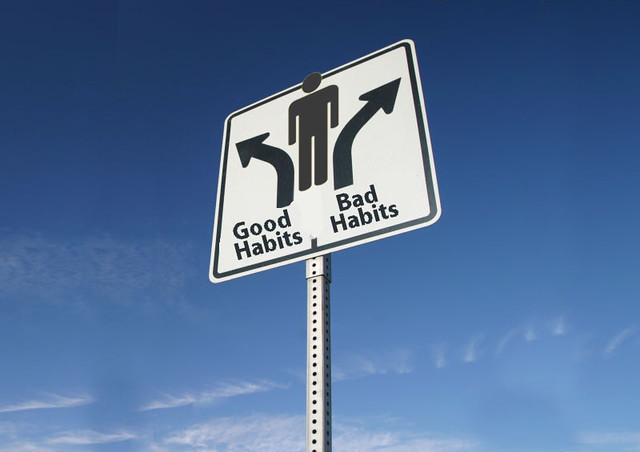How to break bad habits
How to break bad habits without willpower
What is a habit?
A habit is an automatic behaviour that is not conscious but instinct. You barely think about what you are doing when engaging in a habit as it is mostly impulse. Habits even operate in a different part of the brain than conscious activities.
Why you can't break habits
Most people will try to use willpower to correct bad habits. While this may work for a short period, eventually, that urge to pick up your phone or whatever bad habit it may be stays with you and eventually your willpower gives in. This is not a failure on your part, but naturally how your brain works. It is very difficult to overcome bad habits using willpower alone. You may even see other people succeeding and attribute the failure to your lack of discipline or generally “being worse” than other people. This is not the case.
How habits form
A habit forms when you engage in a pleasurable behaviour and dopamine is released reinforcing the action. When a habit is new it is governed by dopamine and is pleasurable however over time it becomes governed by a different habitual circuitry and no longer dopamine. This is why when these activities eventually become habits you often experience less pleasure from them. The same logic applies to the negative feeling that is subdued when you form a good habit.
How to break the habit
An alternative method to overcoming bad habits is to become more aware of your habits. Instead of the habits being automatic you consciously engage in the action and feel your 5 senses while doing it.
For example, if your bad habit is vaping or eating unhealthy food it becomes almost unconscious. By consciously acting on your habit it engages a different part of your brain (Frontal lobe) and you no longer use the habit circuitry to engage in the action.
When you sense the urge or desire for a bad habit act on it willfully and focus on the senses of smell, taste, feel etc making sure to remain engaged and not distant from the action. Also, focus on the feeling of the craving or the desire for whatever the bad habit is.
This is a very good way to start to break down a bad habit as you are not relying on willpower to avoid it but changing it from a habit to just action. Eventually over time it will become so much less of a habit that you can easily break it with a small amount of willpower.
Often with addictions, people will have a lack of awareness when it comes to their internal emotional state. They sometimes feel as if a relapse came out of nowhere but there is usually a sequence of events leading up to it that they just fail to recognise. This is why mindfulness is also effective for addictions as it raises awareness.
Every time you do something with awareness you are strengthening the power you have over a habit by shifting it from your habit circuitry. If you feel you are failing or an urge is too strong to resist, engage in the habit with as much absolute awareness as possible. Awareness is key, even if you fall back try your best to be aware and you are still moving in the right direction.

